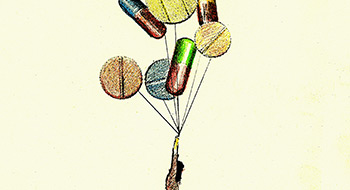
Now that the marketplace has moved past the golden era of drug plan management, where one could do nothing and see cost trends level off (or decline), it comes as no surprise that fear is setting in as the reality of cost increases set in.

A national single-payer pharmacare program is unnecessary and will be costly for Canadian patients and taxpayers, a study says.

Congressional Democrats are pressing a Republican committee chairman to force a pharmaceutical company to turn over documents tied to price hikes imposed earlier this year.

NDP leader Tom Mulcair went to a Liberal-held riding today to announce he plans to work with the provinces to support universal prescription drug coverage—but the party is not classifying their promise as a national pharmacare plan.

Shire has made an unsolicited takeover bid of US$30 billion for biosciences company Baxalta, which was recently spun off from healthcare company Baxter International.

Teva Pharmaceutical has agreed to acquire Allergan's global generic pharmaceuticals business for US$40.5 billion.

It’s interesting to watch how product and service development, and the marketing of these offerings, takes place in the group benefits industry. Products and services routinely seem to be developed based on perceived need and often don’t appear to have been thoroughly vetted by the end customer: plan sponsors. Once an offering is released into the market, there seems to be a subsequent rush of competitors looking to bring similar offerings to bear primarily to make sure they can check off the same capabilities boxes, as opposed to focusing on actual need and approach.

Health Minister Rona Ambrose has penned a sharply-worded letter calling for the provinces and territories to co-operate with the feds to help slash the cost of prescription drugs.

Moving to a publicly-funded, single-payer system for prescription drugs could save Canada billions of dollars, finds a study by The Mowat Centre.

Your employee has tried to treat her depression with at least two different medications but nothing seems to be working. She’s not alone: research suggests at least half of adults with major depressive disorder (MDD) will fail to respond to multiple attempts with antidepressants.